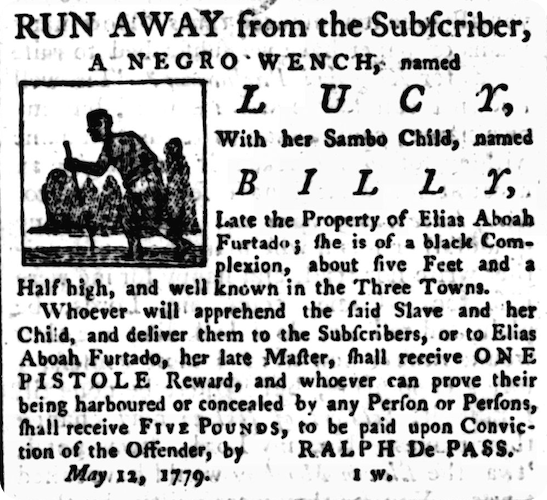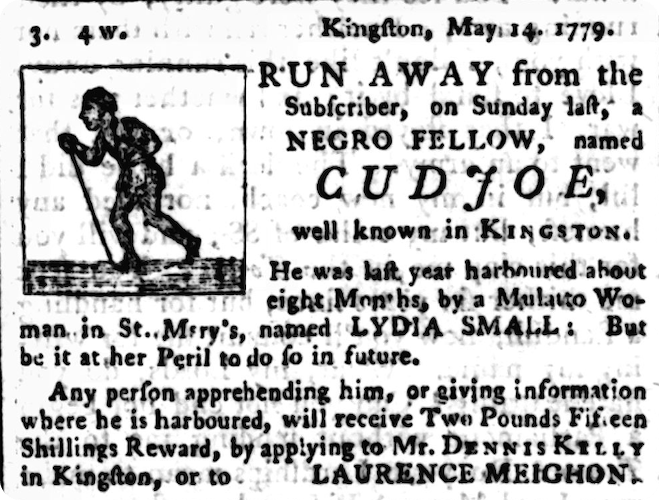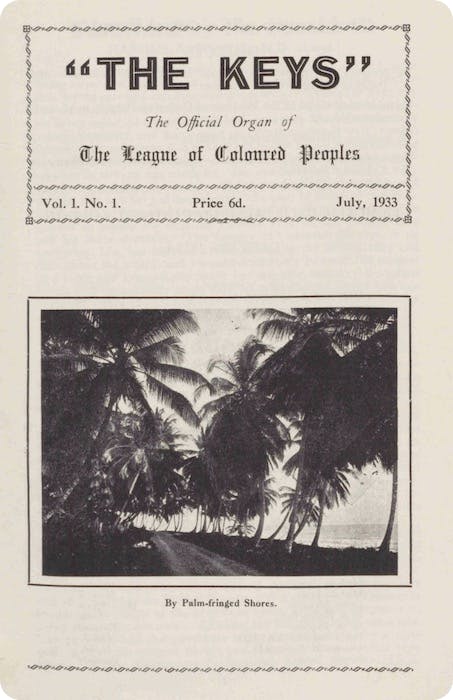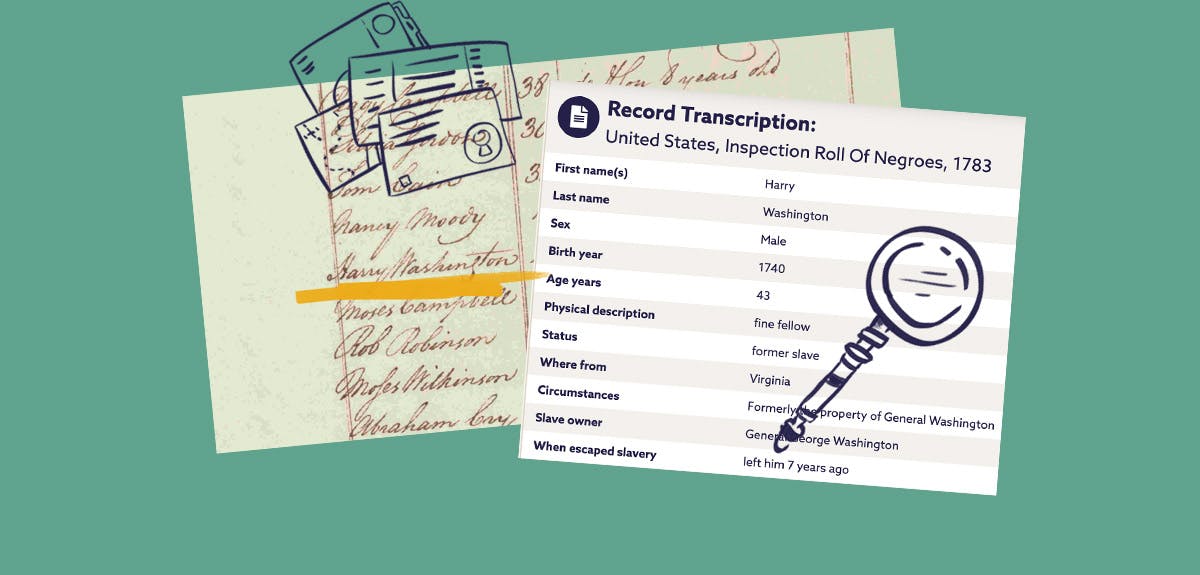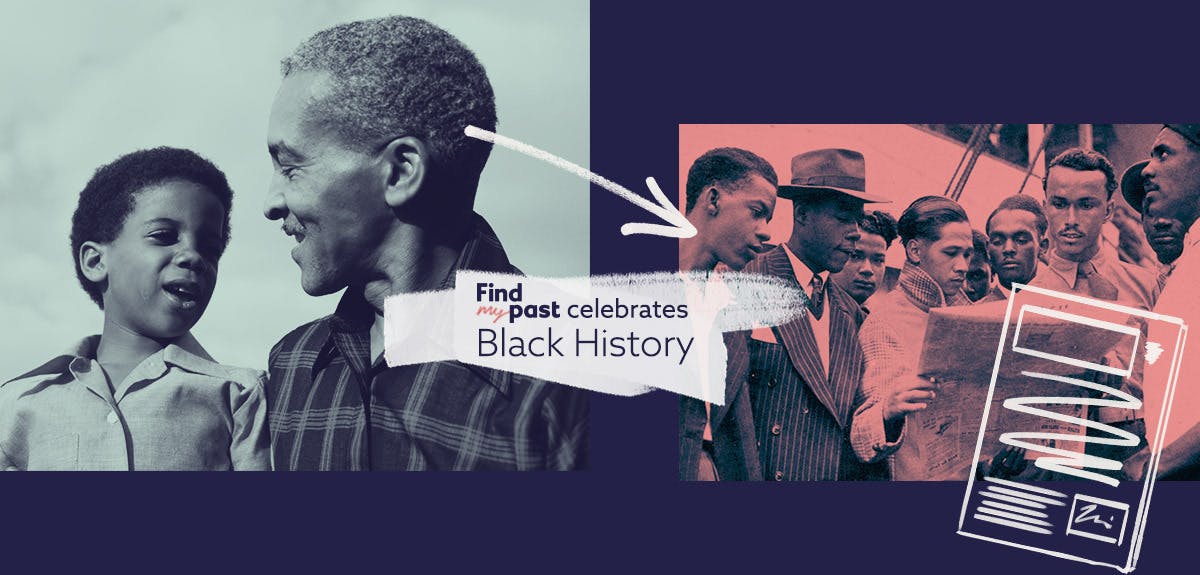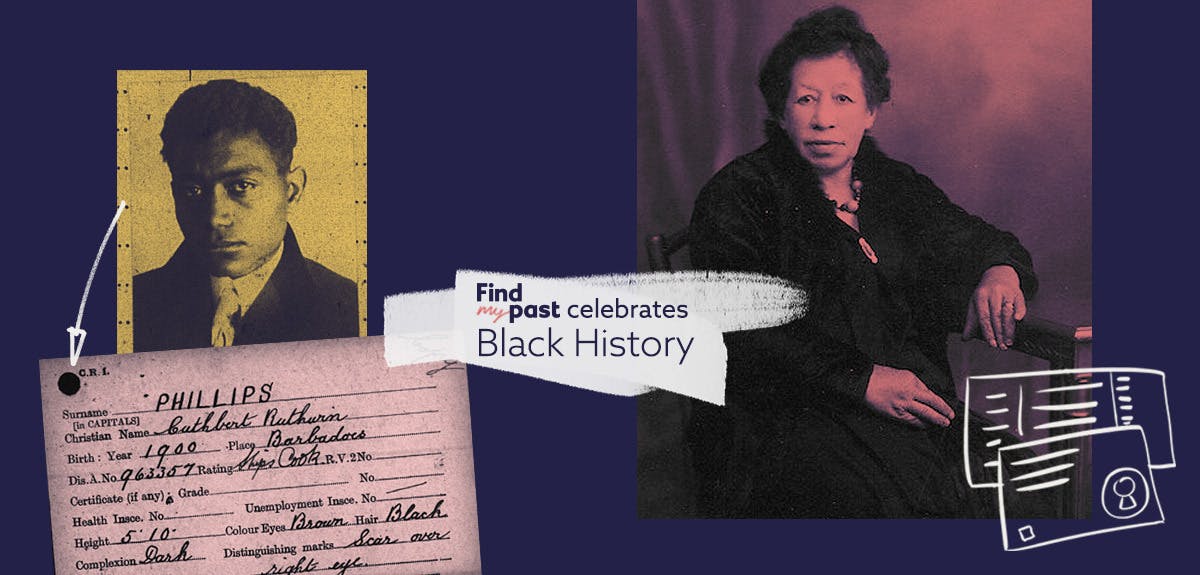This October, connect with Black ancestry with our newspaper collection
7-8 minute read
By Daisy Goddard | October 16, 2023
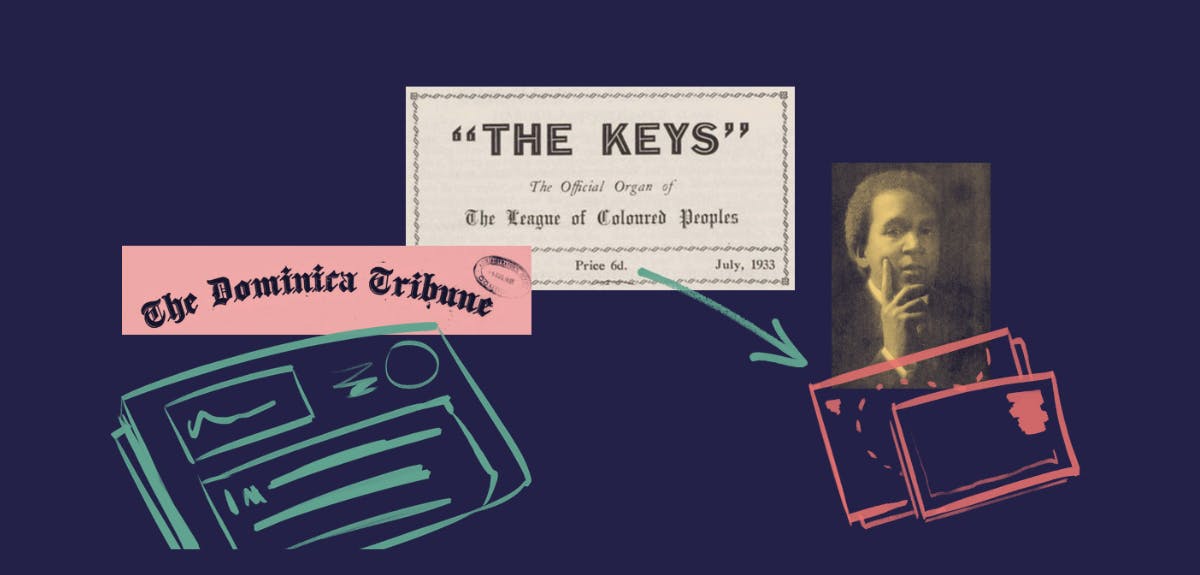
With millions of newspaper pages to explore, researching Black ancestry is easier than ever. In honour of Black History Month, here are a few of our most fascinating finds.
If you've ever wanted to delve into the stories of the past - whether those of your very own ancestors or those of whole communities - look no further than historical newspapers. Digitised for easy online accessibility, old newspapers provide a detailed window into the past. In unlocking even more discoveries about your ancestors, newspaper pages can help to add colour and detail to your family tree.
Thanks to Findmypast's partnership with the British Library, we have over 70 million digitised pages for you to explore. While many of these are free to view, our Premium subscription grants you unlimited access to every title.
From marriages and community events to criminal trials and the talking points of the time, there is really no limit to what can be found within our newspaper collection.
Researching Black History using newspapers
As many genealogists will know, researching Black family history can be challenging. With travel, migration, and the complex legacies of the empire, uncovering Black ancestry stories is often far from clear-cut.
In instances where traditional records fall short, historical newspapers might just provide the missing piece of your family history puzzle.
If you're struggling to track the life of a Black family member through travel and census records, their name may just appear in our newspaper collection. Perhaps they were well-known in the local community, or even embroiled in a scandal or two...
Read on to discover some key Black genealogy gems within the newspaper collection. This guide will point you towards some must-read titles, and offer advice for making your very own exciting Black ancestry discoveries.
Stories of colonialism from the Caribbean and beyond
One topic that you'll find a wealth of historical newspaper pages about is the British Empire.
Beginning in the late 16th century, Britain's was the largest empire in history. It comprised around 23% of the world's population by 1913, spanning over 35 million square kilometres.
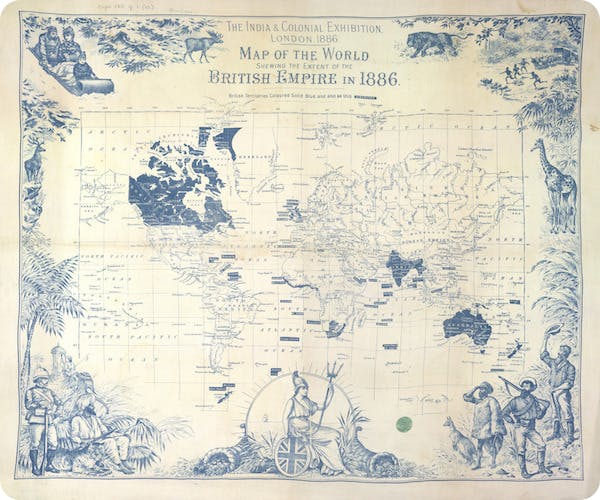
The British Empire in 1886.
Over 400 million people were colonial subjects in this period, yet many of their stories have been lost due to their invisibility within the historical archive.
As they recorded local affairs, from political uprisings to commerce and more, newspapers can help to restore agency to some of those who lived under British rule. Within Findmypast's newspaper collection, you'll find several titles from the British Empire and the Commonwealth that succeeded it.
Searching by location
To hone in on stories from a particular country, town or city, simply filter your newspaper results by location. You may wish to discover pages from Bombay, India, Georgetown, Guyuana, Lahore, Pakistan, or Kingston, Jamaica.
A simple search for newspapers from Kingston returns some interesting results. Take this page from the Jamaica Mercury and Kingston Weekly Advertiser (later known as the Royal Gazette of Jamaica) in May 1779, for example.
Published at the height of the transatlantic slave trade, this newspaper featured reports of escaped enslaved peoples. We learn the story of a woman named Lucy, who escaped from Elias Aboah Furtado with her son Billy. As the article recounts, she was five and a half feet tall and well-known in the local area.
Just below, there's an account of another runaway, Cudjoe, who was reportedly assisted by a mulato (mixed race) woman named Lydia Small. The article threatens anyone looking to help enslaved people escape - 'He was last year harboured about eight Months by a Mulato Woman in St Mary's... But be it at her Peril to do so in the future'.
Although tracing enslaved ancestors can be near-impossible due to the difficulty of identifying full names, there are nevertheless important stories to be found within these types of articles from the colonial period.
Titles to explore
With harrowing stories of slavery and so much more, here are some other titles from across the British Empire:
- Barbados Herald
- Barbados Agricultural Reporter
- British Australasian
- Cape and Natal News
- Civil & Military Gazette (Lahore)
- Colonial Standard and Jamaica Despatch
- Daily Malta Chronicle and Garrison Gazette
- Dominica Guardian
- Dominica Tribune
- East African Standard
- Indian Statesman
- Kingston Informer
- Mirror (Trinidad & Tobago)
- Natal Mercury
- Royal Gazette of Jamaica
- Times of India
- Voice of St. Lucia
Some of these international titles, including The Keys, the Barbados Mercury and the Friend of India and Statesman are free to browse. You can explore over 15 million free historical newspaper pages here.
The countries covered in our newspapers include Australia, Barbados, Dominica, India, Jamaica, Kenya, Malta, New Zealand, Pakistan, South Africa, Saint Lucia, and Trinidad & Tobago. With hundreds of thousands of pages available, these titles span almost 100 years.
Black British cultural pioneers
If we travel forward through the years, there is a more varied selection of Black stories to be found in our British and Irish newspapers.
You may wish to explore the pages of the African Times and Orient Review. Founded by Egyptian-British journalist Dusé Mohamed Ali in 1912, this title was Britain's first Black journal, and was dedicated to the 'interests of the coloured races of the world'.
Using our newspapers, we can also uncover the tales of Black Britons who made immense contributions to culture. Two of these household names are Evelyn Dove and Shirley Bassey.
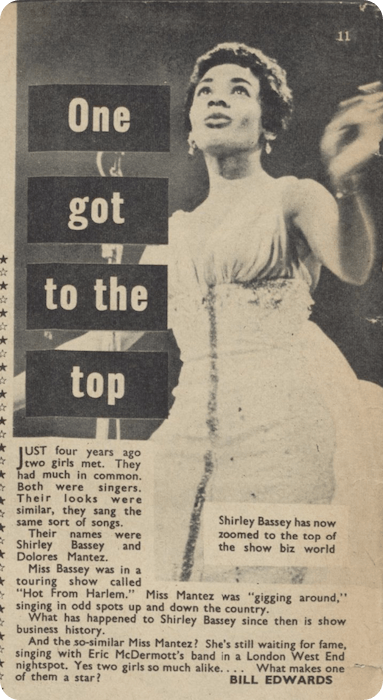
A report on Shirley Bassey's newfound stardom in the Picturegoer, 7 December 1957.
A search for these women in the newspaper collection reveals over 30,000 mentions - so why not try for yourself?
There are plenty of other Black cultural icons to be found in our newspapers.
With a little digging, we uncovered the story of British Sierra Leonean composer Samuel Coleridge-Taylor. Born in London in 1875, Coleridge-Taylor's work earned him notoriety by his early 20s. As reported by the Western Evening Standard, his composition of Longfellow's Hiawatha 'gained... him very considerable popularity'.
His career even took him across the Atlantic, where he performed for President Roosevelt.
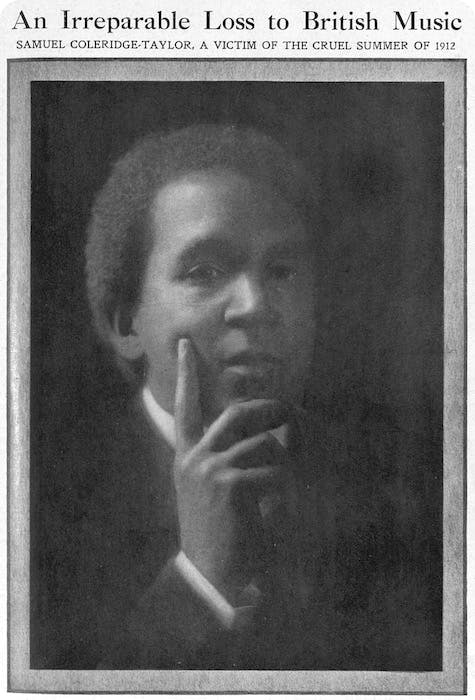
Samuel Coleridge Taylor.
Coleridge-Taylor sadly died of pneumonia in 1912, aged just 37. A look at the newspapers reveals a period of public mourning following his death, with titles like The Bystander lamenting an 'irreparable loss to British music'.
You can explore the public's reaction for yourself here.
Harold Moody and the League of Coloured Peoples
Britain's Black community has a long history of political activism. Unsurprisingly, you'll also find this played out in the pages of our newspaper collection.
Just one example of the fascinating lives to be discovered is Dr Harold A. Moody, whose name appears over 2,000 times within our pages (see these search results here).
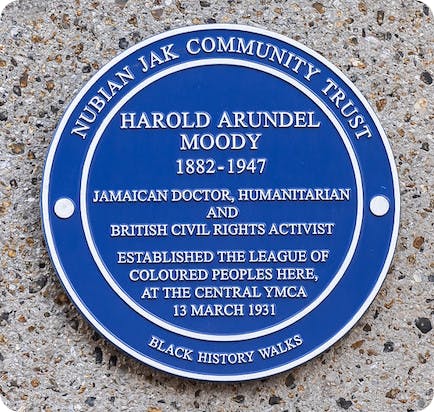
Harold Moody's commemorative plaque. Explore for yourself.
Born in Kingston, Jamaica in 1882, Moody travelled to the UK to study medicine at King's College London in 1904. Despite qualifying at the top of his class, Moody was refused work because of his colour. In 1914, he opened his own practice in Peckham, South London.
Around 15 years later, Moody formed the League of Coloured Peoples (LCP), to fight for civil rights in Britain and beyond. Its objectives were to 'promote and protect the social, educational, economic and political interests of its members', and to 'improve relations between the races'.
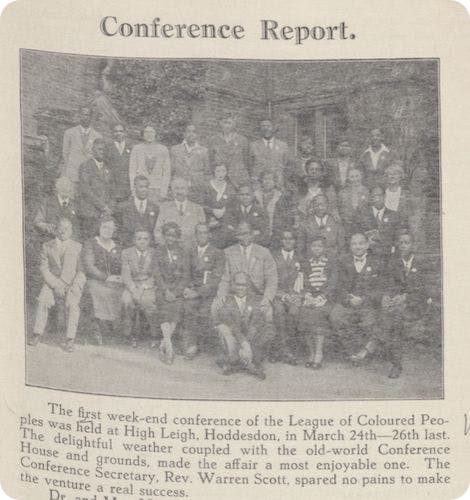
Report of a LCP Conference in The Keys.
The League was instrumental in getting the 'Coloured Seamen's Act' of 1925, which partially barred Black and Asian British men from serving in the armed forces, overturned. Moody himself also played an important role as a doctor for the local community during World War 2.
From 1933 to 1939, the LCP put out a quarterly journal called The Keys.
In addition to a foreword by Moody himself, it contained reports of the League's activities and longer editorial pieces. Findmypast is delighted to provide access to such a rich historical title. You can explore all six years of The Keys here.
What can you discover about your ancestry within our newspapers?
With titles stretching from the 1700s up to the present day, there are over 300 years of history to explore.
Be sure to use the name field to search for your ancestors within our collection. Whether or not your family tree contains notable names, it's likely that you'll be able to find a mention or two of your forebears.
This Black History Month, why not delve into the newspaper collection to discover more about key points in Black British History? Follow these links to browse news stories for yourself:
- The Bristol Bus Boycott of 1963
- The Brixton riots in the 1980s
- Notting Hill Carnival through the years
Finding what you're looking for is simple when you follow our top tips for searching old newspapers.
Black History Month: FAQs
What is Black History Month?
Celebrated in October in the UK and in February in the US and Canada, Black History Month is an important opportunity to reflect on the history of the African diaspora and those descended from it.
How did Black History Month start?
The first-ever Black History Month was introduced by teachers and students at Kent State University in Ohio in 1970. It has since risen to prominence, gaining official recognition from governments on both sides of the Atlantic.
Why is Black History Month important?
Given the complex history of race and ethnicity across Europe, North America and beyond, Black History Month is an important chance to recognise the contributions of Black people to every aspect of society.
